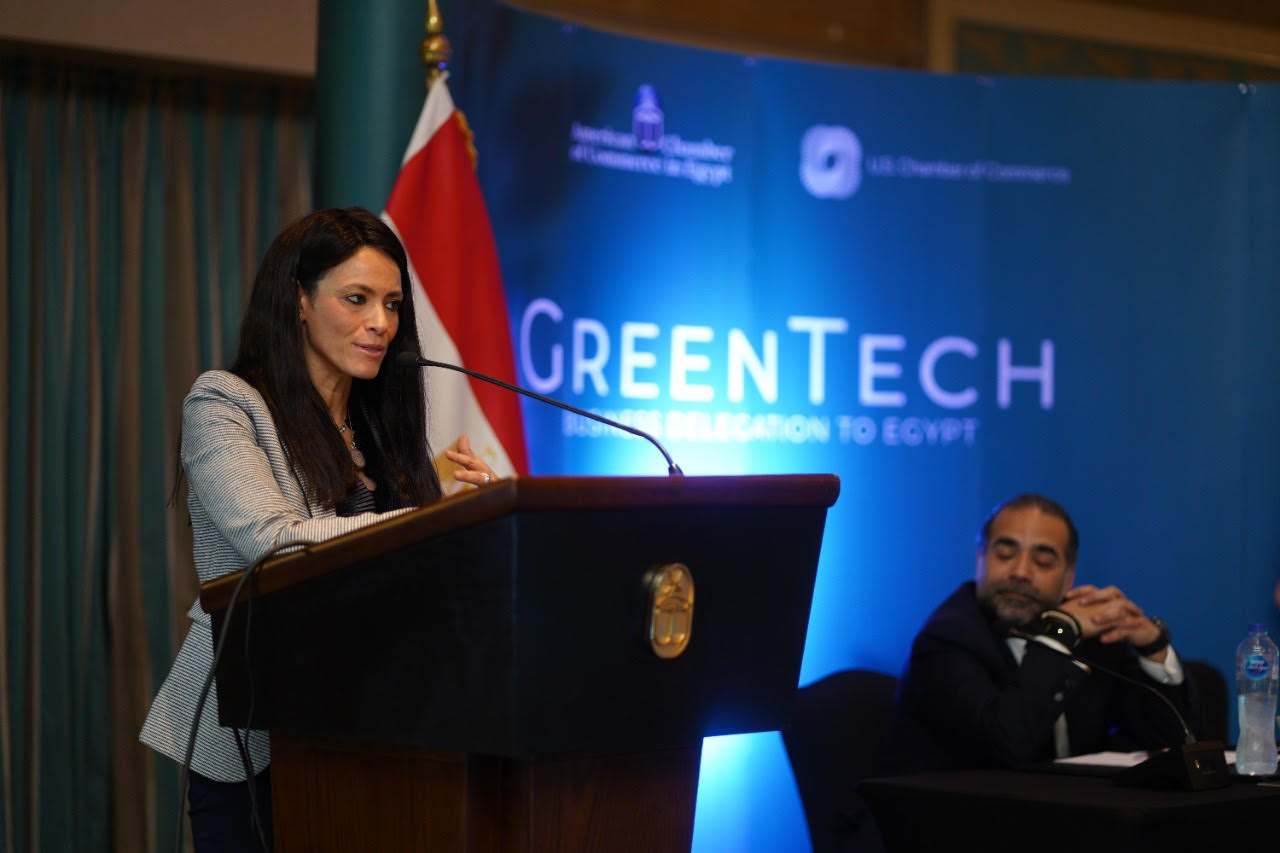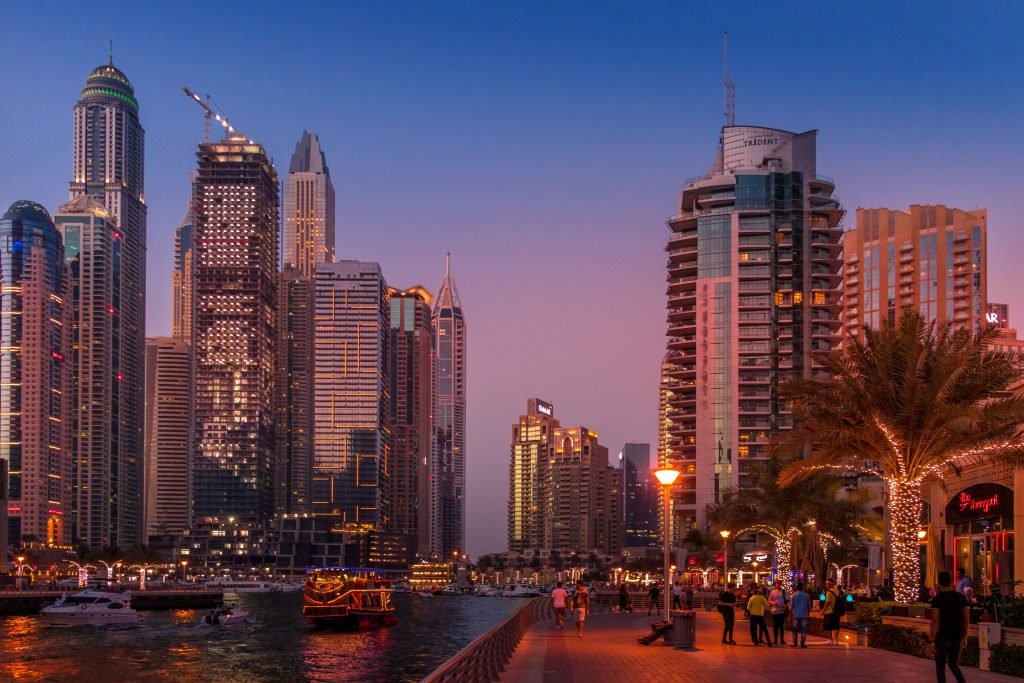Innovative and effective financing tools are a catalyst to ensure that commitments made at COP26 are put into action ahead of COP27 in Egypt, says Minister of International Cooperation Rania Al-Mashat during a May 15 ministerial roundtable meeting with U.S companies visiting Egypt in search of green-tech investment opportunities.
The roundtable was part of the first-ever U.S. GreenTech Business Mission on May 14-17, organized by the American Chamber of Commerce in Egypt (AmCham Egypt,) the U.S. Chamber of Commerce and the Office of the U.S Special Presidential Envoy for Climate. The mission’s delegation included American investors, policymakers, eco-friendly financiers, and technology companies who met with Egyptian companies and government officials to learn how U.S. companies can capitalize on Egypt’s green ambitions.
Egypt plans to make its economy eco-friendly and sustainable as part of its National Climate Change Strategy 2050, which should enable the country to better face and manage climate change at different levels. Al-Mashat explains her ministry’s focus is to finance large-scale eco-projects in agriculture, irrigation, sustainable transport, and energy.
“Throughout 2020 and 2021, [the government] secured $4.7 billion in development financing,” says Al-Mashat, supplied by partners including the World Bank, African Development Bank, European Investment Bank, and China. This year, the government will also seek financing from multilateral institutions such as the World Bank, European Bank for Reconstruction and Development, and the United Nations Development Programme for green projects.
However, the minister also stresses the importance of collaboration with U.S. investors and the private sector to ensure suitable financing tools for those eco-friendly projects.
The three main areas of growth opportunities in Egypt are green, inclusive and digital projects, and the minister emphasizes that matching those projects with the right type of U.S. investors and the most suitable type of financing will be crucial to realizing the government’s environmental goals.
“We want to showcase ourselves as an example in Africa, that we … have several projects that have … materialized in terms of their financing,” she says.
Pushing for green investments
Egypt is sparing no effort to build up strategic foresight through developing policies and improving governance, which in return creates a predictive policy environment for private investors, Al-Mashat says. Financing eco-friendly and sustainable infrastructure is the “driving force” behind Egypt’s economic growth.
Within the ministry’s current portfolio, there are 28 adaptation projects worth $2.85 billion in development financing. These projects are deploying environmentally friendly principles and practices in agriculture, irrigation and another water usage by enhancing climate-smart agricultural practices and investing in water desalination and wastewater management projects.
Some $7.83 billion in development financing contributes to 46 mitigation projects that incorporate environmentally friendly practices across multiple sectors, particularly energy and transport. These projects include building new solar power stations and wind farms, as well as renovating and constructing new metro lines and electric trains to establish a sustainable transport system.
Al-Mashat is showcasing the state’s efforts to promote the transition towards a green economy through its Integrated Sustainable Energy Strategy. Egypt has put energy reforms at the top of its reform agenda since 2015, aiming to increase private sector investments in new and renewable energy projects. This allowed Egypt to progress 67 steps out of a total of 190 countries between 2014 to 2019, according to the World Bank’s Doing Business Report on access to electricity services.
Al-Mashat says it’s crucial to adopt a reality-based approach to infrastructure delivery, bringing together all key players in the public and private sectors to create consensus, identify the challenges in each of the phases, and apply resilient risk mitigation accordingly. She adds that foreign investors would have to bring in technical expertise and funding.
Innovative financing will be crucial for implementing all future massive and vital projects. “We’re working with many of the partners here … to try and see how we can … create more implementation from all the pledges and the trillions that we heard about [at COP26],” says Al-Mashat. “Egypt is impartial; adaptation and resilience are of importance but implementation is key.”







